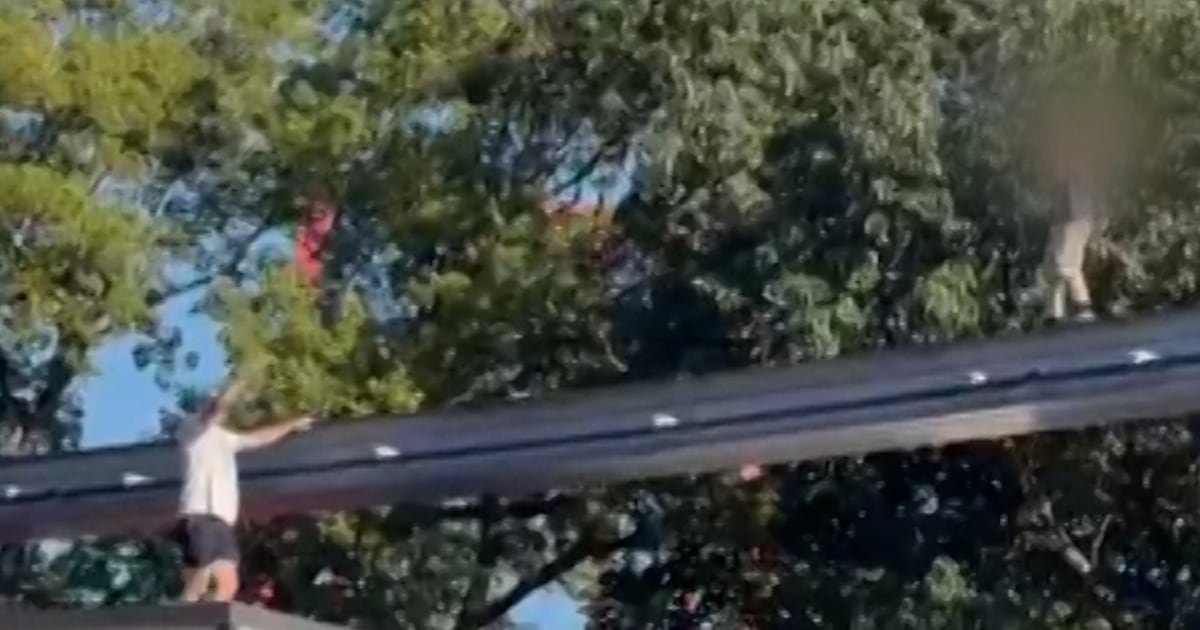SEOUL, South Korea – South Korean President Yoon Suk Yeol attended a Constitutional Court hearing on his impeachment on Tuesday, where he denied ordering military commanders to remove lawmakers from parliament during his brief attempt to impose the martial law.
Near the start of the hearing, Yoon said he had worked in public service with “a firm commitment to free democracy” when he was invited to speak by acting Chief Justice Moon Hyung-bae.
Dressed in a navy suit and burgundy tie, Yoon, a career prosecutor before his election as president in 2022, pledged to answer any questions the court might have.
Yoon has been jailed since last week on separate criminal charges for leading an insurrection through his attempt to impose martial law in early December, a move that shocked the nation and was repealed within hours by parliament.
Yoon told the hearing that the special forces troops sent to parliament on Dec. 3 were not there to disable the legislature or prevent it from blocking his martial law order because he knew such action would have led to an indefensible crisis.
“In this country, parliament and the media are much more powerful than the president, and they are in a much superior position,” he told the court.
His lawyers outlined arguments in defense of Yoon’s declaration of martial law, saying it was aimed at sounding the alarm about abuses committed by the opposition Democratic Party.
They argued that the opposition’s actions had paralyzed the government and brought the country’s democratic and constitutional order to the brink of collapse.
“The decree was intended simply to establish the format of martial law and was never intended to be executed, nor was it possible to execute it due to the potential for conflict with higher-level laws,” lawyer Cha Gi-hwan told the court.
Cha also denied the testimony of military commanders involved in the declaration of martial law, who said that Yoon and his top advisers ordered the arrest of some members of parliament who had clashed politically with the president.
The opposition Democratic Party, along with minor parties and 12 members of Yoon’s People Power Party, voted with a two-thirds majority to impeach Yoon on December 14.
The Constitutional Court began the trial on Dec. 27 to review an impeachment motion that accused Yoon of violating his constitutional duty by imposing martial law without justifiable reasons.
The parliament’s legal team presented testimony from military commanders and videos showing military helicopters landing on parliament grounds with special forces troops storming the main building, as well as troops advancing toward the National Electoral Commission.
One of the lawyers also criticized unproven allegations of irregularities at the election commission, which Yoon cited as a factor in justifying martial law.
“In South Korea’s current national chaos, the election fraud conspiracy theory may destroy our own community,” the lawyer said.
The Constitutional Court has up to 180 days to decide whether to remove Yoon from office permanently or reinstate him.
Yoon was brought to the hearing from the Seoul Detention Center, where he is being held, in a correctional service vehicle escorted by a Presidential Security Service motorcade.
He was allowed to change out of the khaki prison uniform he is currently required to wear.
Yoon’s decision to attend the impeachment hearing contrasts with his vigorous resistance to criminal proceedings against him, where he has refused to respond to investigators’ subpoenas or attend interrogation sessions.
Yoon’s legal team has denied that he planned an insurrection, a crime in South Korea punishable by life in prison or even technically the death penalty.
Security was stepped up at the Constitutional Court on Tuesday, after a mob of angry Yoon supporters rampaged through the district court that issued an order to extend his detention early Sunday.
Dozens of police buses were lined up on both sides of the street, keeping hundreds of Yoon supporters more than 100 meters from the court.









